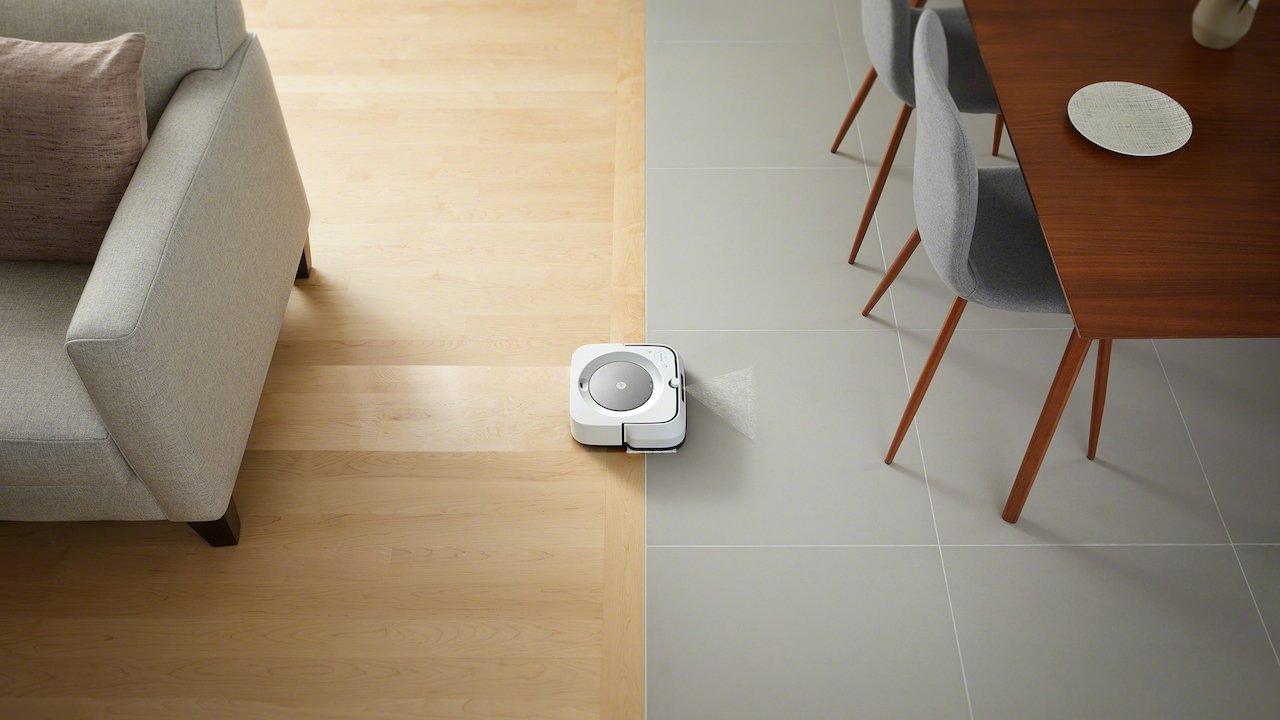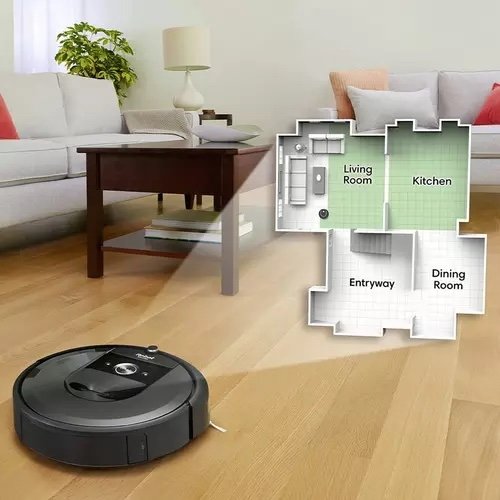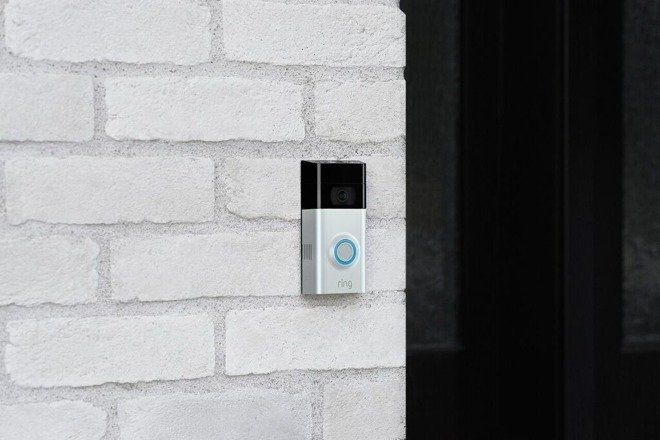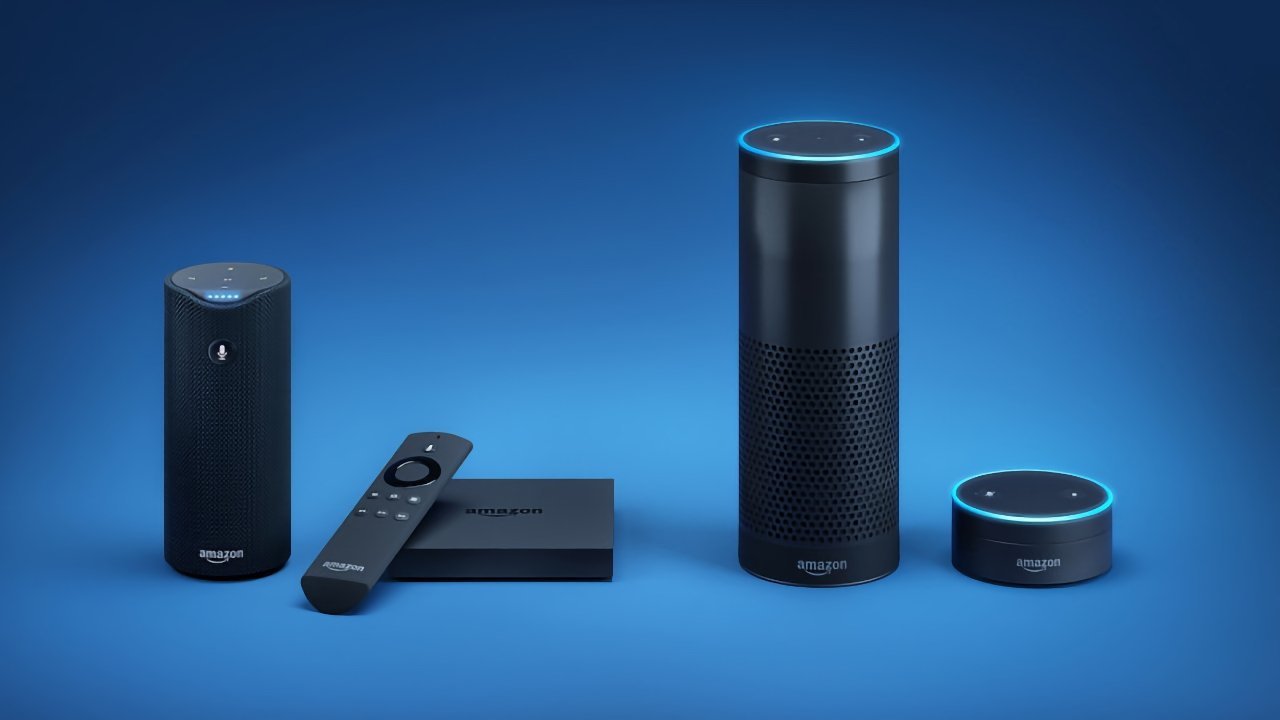With iRobot acquisition, Amazon wants to scan every inch of your home
Amazon wants to be everywhere inside your home, and for those concerned about their data and privacy, that's a dangerous prospect.
On Friday, the retail juggernaut announced a $1.7 billion acquisition of iRobot, the manufacturer of the Roomba series of robotic vacuum cleaners. Although not yet approved, many privacy experts are already concerned about the deal.
Acquisitions and mergers are not uncommon in the technology industry. However, many believe that Amazon's deal to buy iRobot is about much more than releasing a line of Alexa vacuum cleaners.
Here's what you should know.
Amazon is a surveillance company
Although you might think of Amazon as only a retail giant, it's actually primarily a data company. Its heavy focus on harvesting user data drives its retail footprint and other aspects of its business.
According to futurist Bernard Marr, Amazon leverages data to understand what its customers want — and how it can persuade them to buy.
"The more Amazon knows about you, the better it can predict what you want to buy," Marr wrote in a blog post. "[Amazon's] mountain of data is used to build up a '360-degree view' of you as an individual customer."
With the acquisition of iRobot, Amazon is also getting a treasure trove of existing user data — including maps and floorplans of user homes.
Roomba vacuums are equipped with mapping technology that allows them to learn and remember floor plans inside user homes, iRobot has said in the past.
The Roomba data, combined with Amazon's other data sources, can give a very complete picture of a user's home and the activities that take place within it.
When viewed without context, that Roomba data by itself may only be partially useful when viewed, but consider all the other ways Amazon has inserted itself into user homes. It already has access to video footage from Ring cameras, voice information from Alexa-connected devices, and shopping information from its retail footprint.
Evan Greer, director at digital rights organization Fight for the Future, says that Amazon's entire business model is built on surveillance.
"Amazon wants to have its hands everywhere, and acquiring a company that's essentially built on mapping the inside of people's homes seems like a natural extension of the surveillance reach that Amazon already has," he told Wired.
Amazon wants to be everywhere inside your home
Amazon's journey into the homes of people across the globe really kicked off with Alexa devices. Sold as loss leaders, these smart home speakers ended up inside millions of households.
Although marketed as a convenience device and automation product, Alexa speakers are really designed to gather data on customers to drive retail sales. That's part of the reason why Alexa speakers are so affordable, and why they're given away for free in many types of promotions and deals.
Alexa was only the start. There have been a number of acquisitions suggesting that Amazon's end goal is to obtain a comprehensive view inside people's homes.
Back in 2018, Amazon acquired Ring, the maker of a series of home surveillance devices and smart doorbells with cameras built-in. It acquired Wi-Fi router company Eero in 2019, giving it access to internet usage data.
Many of the products it's planning also paint a vivid picture of home surveillance. Some of Amazon's recent announcements include an autonomous security drone that flies around a home, as well as a personal robot equipped with microphones and cameras.
Back in July, Amazon announced a planned acquisition of OneMedical, a primary care provider. In other words, it may expand its data collection practices into the health information of its users.
Past Amazon privacy issues
Amazon uses its vast data collecting habits to power its retail and digital services. But even if you believe that tactic isn't nefarious, there are plenty of reasons to be cautious about the company's acquisition of iRobot.
Like other tech giants, Amazon does not have a sterling reputation when it comes to data privacy.
Back in 2019, Amazon was caught using human transcribers to listen to Alexa voice command recordings. The company did not alert users to the practice, which stirred controversy.
Amazon subsidiaries like Ring have also been caught sharing data with third-party companies without prior notice or consent. Ring also has long-established relationships with law enforcement agencies, and has a habit of sharing doorbell video footage with police without warrants.
The company has received flack for its data practices in the past, too. In 2019, Amazon was hit with two class action lawsuits for allegedly violating the privacy of children using Alexa products. In 2021, EU regulators hit Amazon with a nearly $1 billion fine for violations of privacy regulations.
The sheer amount of data that Amazon collects, as well as its shaky history of privacy practices and protections, are part of the reason why experts are concerned about the Roomba acquisition.
Antitrust issues
The acquisition is dangerous for other reasons, too. For one, iRobot is an established and dominant player in the home robotics industry. It's not a startup, and Amazon's acquisition could squash competition in a market that's already dominated by just a few players.
Because of that, however, there's a chance that the deal could face antitrust scrutiny from regulators like the Federal Trade Commission (FTC).
The current chair of the FTC is Lina Khan, a legal scholar and antitrust expert. Khan's past research and work has included deep criticisms of acquisitions by Big Tech. She has also been specifically critical of Amazon itself.
However, even without an acquisition of iRobot, Amazon is still working to get a bird's eye view of every inch of your home. Between its own Astro robot and security drones, its Ring doorbells, and its smart speaker products, the company is already dangerously close to that goal.
 Mike Peterson
Mike Peterson

















 Amber Neely
Amber Neely
 Thomas Sibilly
Thomas Sibilly
 AppleInsider Staff
AppleInsider Staff
 William Gallagher
William Gallagher
 Malcolm Owen
Malcolm Owen
 Christine McKee
Christine McKee










14 Comments
The original Roomba was one of the first robotic products I ever purchased that did exactly what it was advertised to do. Our 860 is still going strong, and I hope we never have to replace it…because no way I’m letting Amazon have access to our home this way. I’m good with them knowing what I order, just don’t want them in my house (wrapping tinfoil over my head).
I mentioned something along this line when this story first broke, but this story brought it back up.
I wonder if those of us with Roomba vacuums have to worry? Amazon will quite possibly want to push out Alexa brand, or at least Amazon designed, vacuumed with all the spyware in place. I wonder if they’ll bother trying to integrate their surveillance tech into our old, rapidly becoming obsolete, devices and just push out A new Amazon/Alexa line with all of that in place.
One thing I do know is that I don’t think I want to update the App from what I have now.
Posted this yesterday.
Amazon is not surveillance company, but it does do too much in space of knowing about people's life. That is why Alexa landed with my household out of power when I saw light coming as indicator on regular conversations when Alexa was not called.
IRobot however has function of restriction and mapping is never complete if you have one with smartphone app. You can restrict it from going where out do not want it and slap back if it retries. What's more concerning is that it listens and watches with sensors and who knows what in the future. You have to muzzle it with cloth or piece of towel so, it is arrested from regular activity. Alternatively you can dedicate some locker/storage in your apartment and home it there without allowing to stay outside where it could perform any activity that you do not want. You can let it out like a dog for short period of time and in areas that are unrestricted (the rest is block and off limits to iRobot). Even when it learns your layout you can restrict where it should clean in your app. We tested it and it works, but any attempt to go out and it is booted back to where it should be.